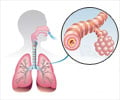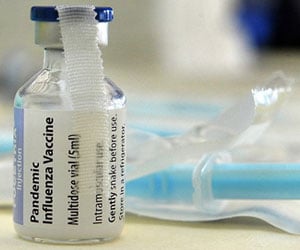Using inhaled corticosteroids to treat chronic obstructive pulmonary disease (COPD) significantly increases the risk of pneumonia in patients, a report published Tuesday showed.
Researchers who reviewed and analyzed 11 randomized controlled trials involving 14,426 participants also found that inhaled corticosteroid (ICS) therapy did not improve survival rates of sufferers of COPD, a smoking-related lung disease."ICS therapy was associated with a 34 percent increased risk of pneumonia," the research team from Johns Hopkins University in the US state of Maryland and the University of Manitoba in Canada wrote in the November 26 edition of the Journal of the American Medical Association (JAMA).
Furthermore, the higher the dose of ICS, the greater the risk of pneumonia, the report said.
"Recognizing the adverse events associated with ICS use is especially important since clinicians may increase ICS therapy from moderate to high doses in patients who are not responding," the researchers wrote.
"Our data suggest that increasing to higher ICS doses may place patients at greater risk of pneumonia," they wrote.
Patients with low exhalation volume, on combination therapy, where corticosteroids are administered along with another treatment, and those on short-duration ICS therapy were also at greater risk of contracting pneumonia when using inhaled corticosteroids, according to the report.
Advertisement
The only interventions which improve survival rates among COPD patients are quitting smoking and supplemental oxygen, according to the report.
Advertisement
Inhaled corticosteroid therapy is used only to reduce symptoms and complications associated with COPD, according to the report.
Source-AFP
SRM














